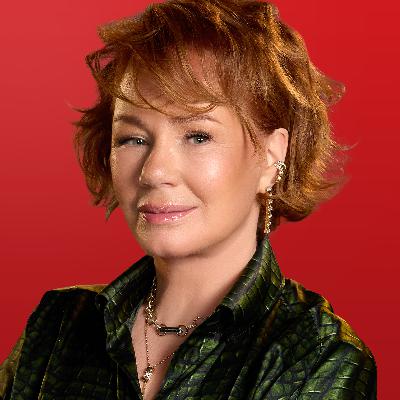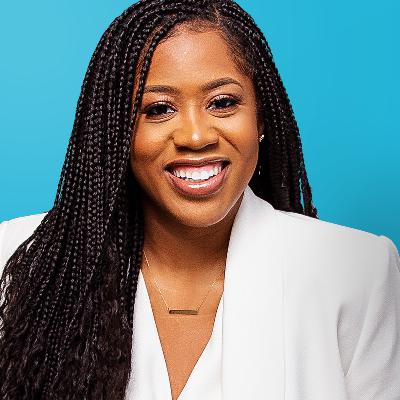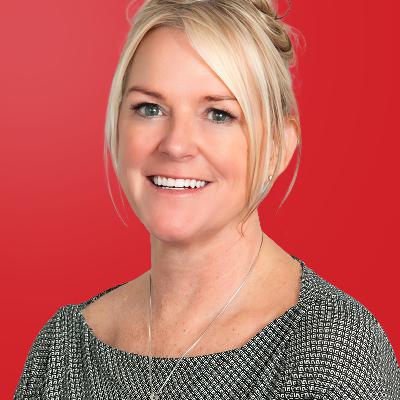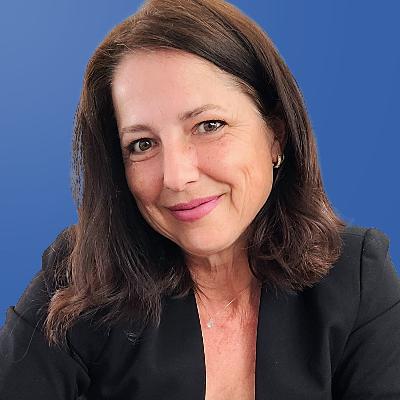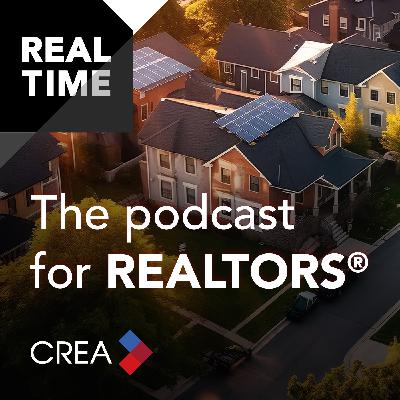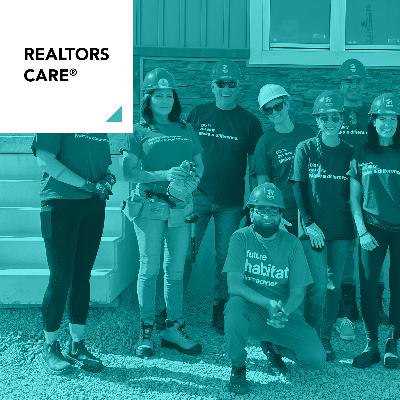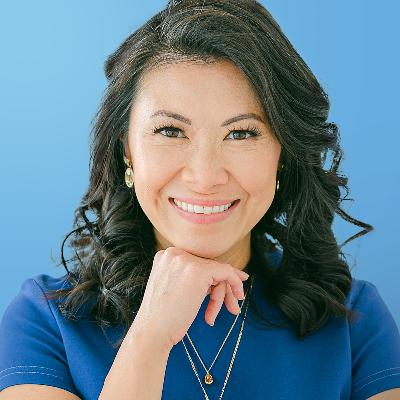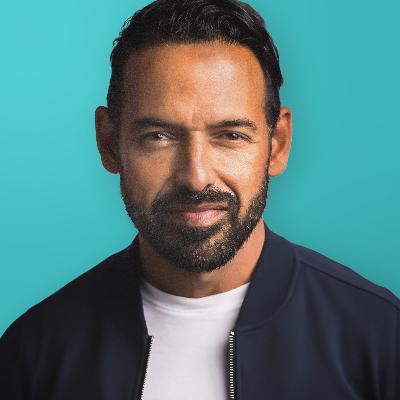Episode 54: The Working REALTOR®: Embracing Mentorship in Real Estate
Description
There are countless ways to succeed in real estate and no two individuals take the exact same route—so, how then does a real estate professional confidently make their next move? There’s so much to learn from other REALTORS® and those who have been in the industry for a long period of time, or have taken a unique path to success.
Mentorship doesn’t just benefit the mentees—mentors also have a lot to gain—like leadership skills, a helping create a more vibrant industry, improved communication skills, insight from different perspectives, a broader network, and boosted confidence. For mentees, the guidance and knowledge transfer is invaluable, networking opportunities can help grow your business, and learning the ins and outs of the industry from someone who’s been through it already can help boost your confidence, too.
Nicole Christy, CEO at the Ottawa Real Estate Board, and Rachel Gagnon, REALTOR® and Top 35 Under 35 with Royal Lepage, join the latest episode of the REAL TIME podcast to talk about their experience with mentorship and how it’s helped their careers.
Transcript
Erin Davis: What did you do the last time you were stuck overthinking a decision you had to make at work or were uncertain what your next move should be in a sticky situation? Who do you trust to help with those tough calls? Real estate mentorship can be a mutually beneficial experience for both the mentor and the mentee and it's something that REALTORS® and real estate professionals alike can explore throughout their entire career, not just in the beginning. Learning never stops. No matter your age, your career or your journey, there's always something to be learned and someone to learn from.
Hi, I'm Erin Davis, and welcome to REAL TIME, the podcast for REALTORS® brought to you by the Canadian Real Estate Association.
Erin: To get a better understanding of what exactly real estate mentorship entails and how to go about creating a successful mentor-mentee relationship, we have two incredible real estate professionals with us who are well-versed in this environment. Joining us today are Nicole Christy, CEO of Ottawa Real Estate Board, and Rachel Gagnon, a top 35 under 35 REALTOR® with Royal LePage. Hello to you both and thank you so much for joining us today to talk about mentorship within the REALTOR® association community.
Now just before we dive in, let's start by having you introduce yourselves, give us a bit of background on who you are and how real estate mentorship has been a part of your career and we're going to start with you, Nicole.
Nicole Christy: Perfect. Thank you, Erin. Yes, I have been in the real estate industry for almost 15 years. I got my start at the Canadian Real Estate Association. It was a co-op position coming out of the University of Ottawa and I've taken the experience, I've learned there, and I've worked for some of the top tier advocacy associations here in Ottawa. Returned to the real estate community back in 2021 when I joined with the London St. Thomas Association of REALTORS® to begin work at the local level. Now I'm here in Ottawa as the CEO of the Ottawa Real Estate Board.
Erin: You, Rachel, what's your story?
Rachel: Yes, so I actually started in the real estate industry in 2015. I was licensed in 2015 as a 19-year-old and I'm a real estate broker here in Ottawa with Royal LePage Performance Realty. I got my start in the industry with a very small brokerage on a very small team, and then a few years later, I transitioned to becoming a solo agent in a large brokerage, and now I'm just in the process of building my own small team.
Erin: Wow, okay. Let's get right to it. What exactly, to you, is mentorship within the real estate industry, and have your experiences followed a set pattern or structure or do you feel like you developed your own unique model? Rachel.
Rachel: To me, real estate mentorship is really, it's an always evolving, pretty much a daily task. It can be as short and sweet as answering somebody's quick and simple question or it can develop into a career spanning relationship that you build. We all know that our days don't look the same and sometimes you run into something that you never thought you would experience, and you need to turn to see who could potentially guide you into figuring out what the solution is. Sometimes that can just be having a trusted point of contact. You can have a few.
Then I would say that you end up having two or three long-term mentors along the way who you share values with and who you look to when it's maybe something a bit more fluid, a bit more gray, and that you need to see how they transition to the other side in their own career, and then figure out how you're going to implement that into your own.
Erin: As far as you know, is your path similar to those of other REALTORS® that you've spoken with, or did you just follow your own heart?
Rachel: I would say I've been pretty true to myself. I really prefer a one-on-one personal approach with my clients, and I think I've associated myself with mortgage brokers, lawyers, and other r REALTORS® who have the similar values along the way. I would say that I've pretty much followed my own path in that regard. Through the years, I've also looked at how other people have structured their own career and seen how I could implement little bits and pieces of their way of doing things into my own. I would say most REALTORS® end up having their unique path and we all end up in the same direction but take your own path to get there.
Erin: Okay, Nicole, let's hear for you what you say mentorship is within the real estate industry and your experiences.
Nicole: Absolutely. Mine is very similar to Rachel's. I find that mentorship really ebbs and flows throughout your career. Some mentorship opportunities or mentorship experiences that you seek out, they have a really short time horizon. They're issue-specific. You're maybe joining a new brokerage or you're joining a new association, and you need to learn the ropes of this new environment. It might be something short-lived like an onboarding. Then there's mentorships that I've been able to benefit from throughout my career. I've been able to turn to these folks at times where I'm struggling, whether it's professionally or personally, to get a sense of how they would manage, navigate these circumstances.
Sometimes you just need somebody who's going to be able to hold up a mirror and give you feedback that's sometimes hard to hear but it's necessary for growth. That's what I've appreciated in the people that have formed that inner circle for me. They're there when I need them. They're a text, a phone call, a Zoom call away, and they're happy to provide that feedback that I need that maybe I don't want to hear in the moment, but that will give me that growth opportunity.
Erin: Nicole, it seems too, if I'm hearing both you and Rachel correctly, that this isn't just a one-way flow of information.
Rachel: Oh, no.
Erin: It's not just you getting everything. It's you sharing what with your peers as well.
Nicole: Absolutely. This is a two-way street. As that relationship grows and it becomes often more of a friendship, it's a mentorship still, but it's a friendship. It could be a colleagueship. It could take a bunch of different forms. While you're sharing your experiences, they're learning a little bit of what's going on in the industry, what's going on at the association, what's going on with the board or the brokerage, and they're benefiting from this exchange. It's an exchange of information, ideas, opinions, and it's something that they then can use for their own benefit as well.
Often you find that your mentors or your mentees are ways to bridge into new opportunities for yourself. As you're having these conversations, they're connecting you with their networks and you're being able to benefit from the relationship that you formed.
Erin: How long does a mentorship usually last? Can you answer that for us first, Rachel?
Rachel: I like to keep it very organic. I think it's very normal that when you have a certain situation that you're trying to get through, that you realize when you've gained the information that you need in order to get to the other side. Then at that point, it just becomes a natural professional or personal relationship, and like Nicole said, typically they become friends. You look to them for professional guidance, and then at a certain point, you get to know them as people and their relationship gradually changes within your life. It's not to say you won't circle back, but I would say that sometimes it's a case-by-case basis, and then sometimes it's a longer growth process that you're looking to go through.
You'll check in with them here and there maybe on a more formal basis, and then sometimes it's in passing just when you touch base on other topics.
Erin: People understand that, right? In the mentor-mentee relationship, is that unspoken that it might turn into a hop-on, hop-off kind of experience, Rachel?
Rachel: I think so. I think everybody is willing to share their knowledge. Even just before jumping on this phone call, I had an agent call me just to pick


